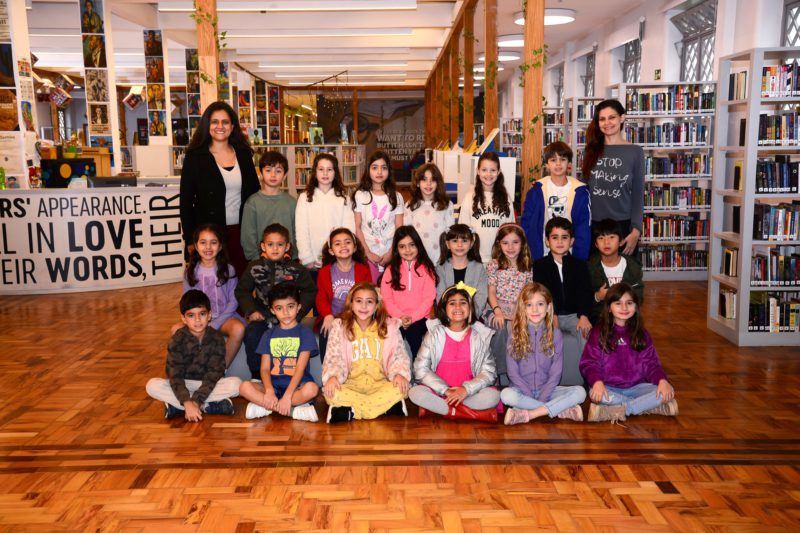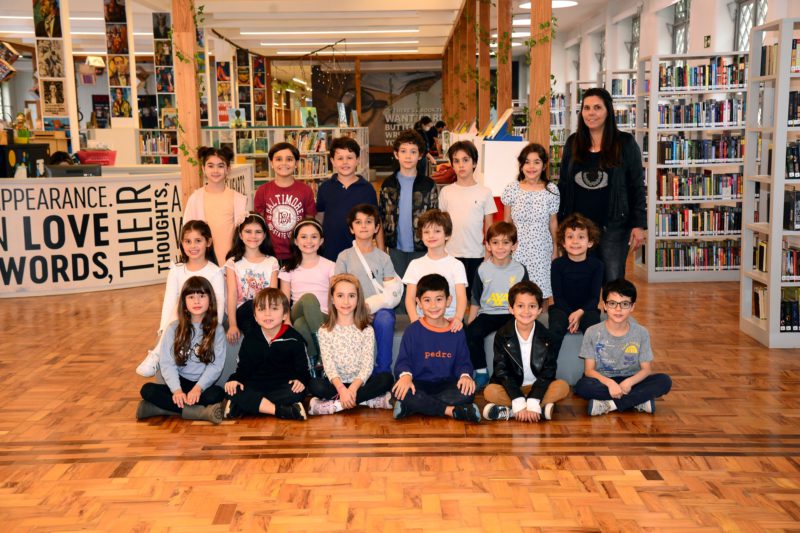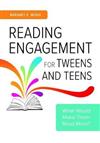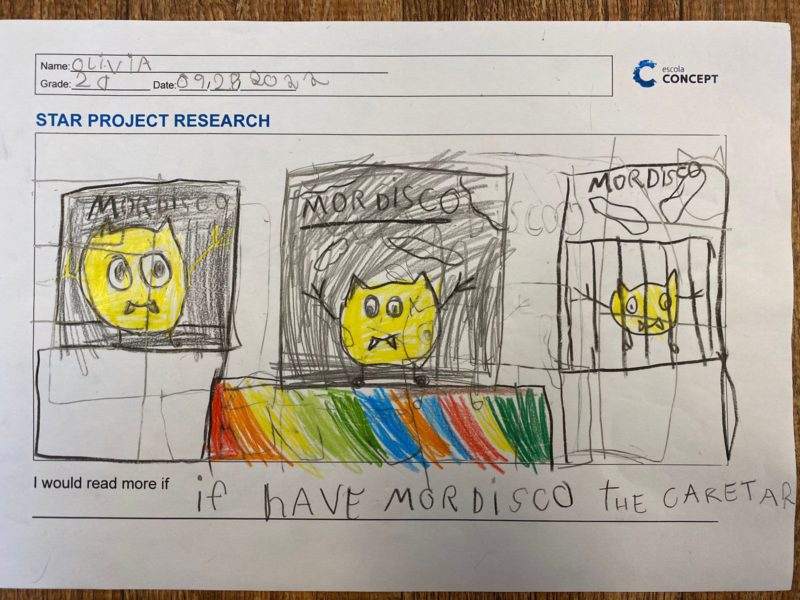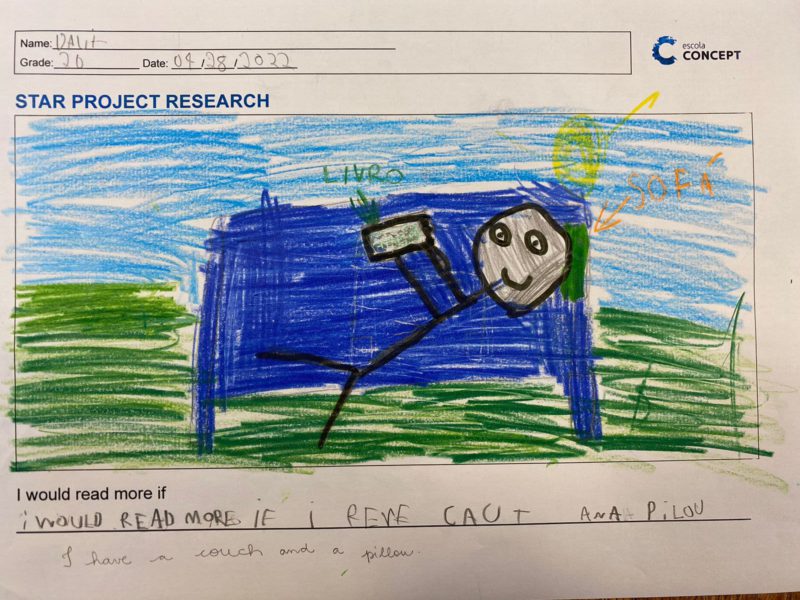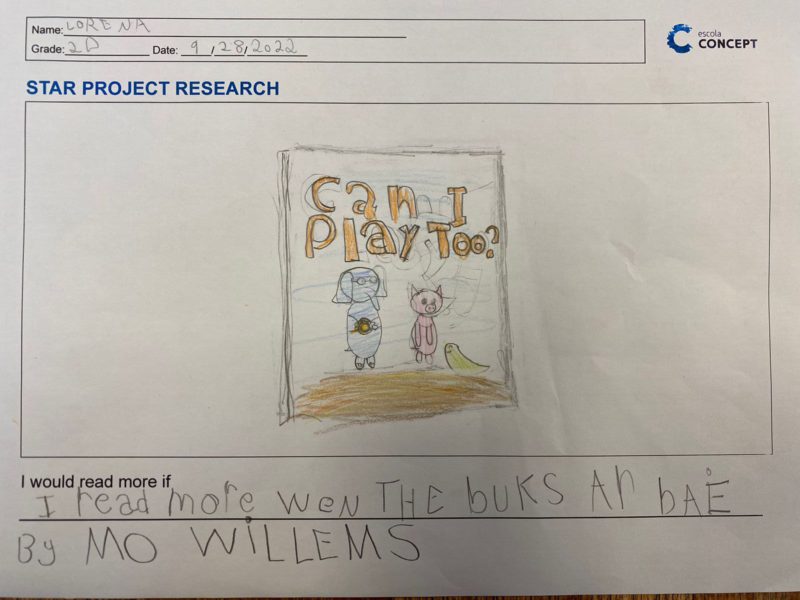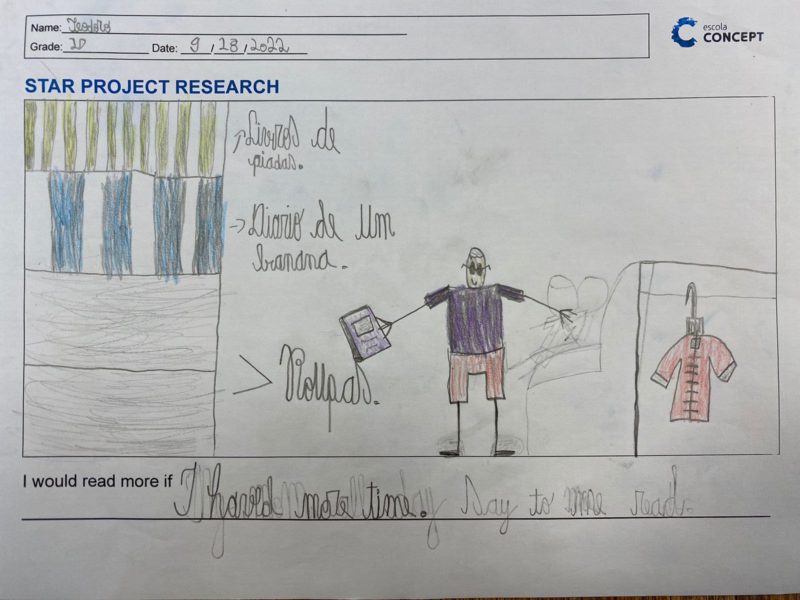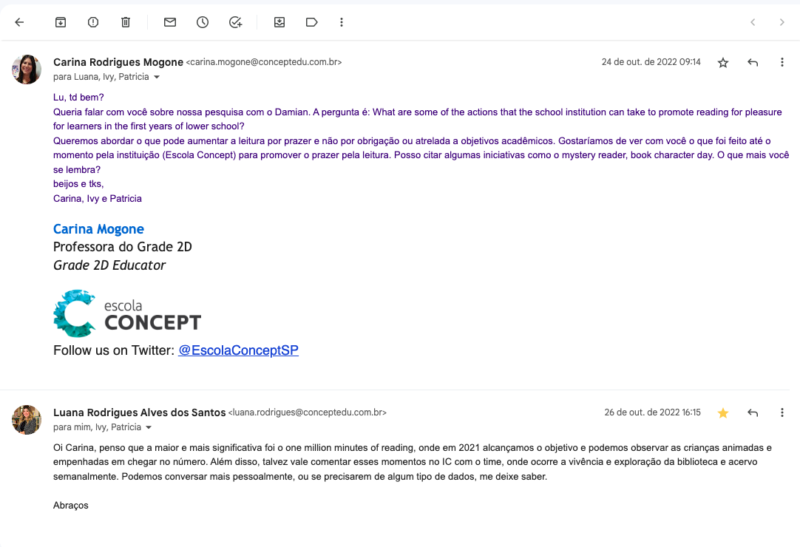How can young learners acquire the taste for reading? Join us on this journey as we discover the factors that support the reading for pleasure.
What are some of the actions that the school institution can take to promote reading for pleasure for learners in the first years of lower school?
General topic of interest
Students read for extrinsic and intrinsic reasons. Extrinsic motivation frequently includes a reward of some type. The main driver of intrinsic motivation is typically a person's desire to learn more about a subject they are interested in or intrigued about.
As Grade 2 educators in a bilingual environment we understand the importance of learners coming into the literate world with a positive atitude. Bilingual learners need to come into contact with a wider linguistic repertoire and create an emotional bond with the written form of both languages.
We believe that reading for pleasure is important for both educational purposes as well as personal development and having a positive attitude towards reading will support their growth in the different areas of knowledge and help them become lifelong learners.
Participants
Grade 2 learners participated in the survey.
Additionally, Luana, the school librarian, was interviewed to collect data about actions taken at the school up until this point.
Literature Review
Margaret K Merga argues that regular recreational reading offers benefits across a range of literacy outcomes, as well as supporting learning in other subject areas, offering cognitive benefits, and potentially fostering empathy.
Donna Alvermann, co-editor of Engaged Reading: Processes, Practices, and Policy Implications, suggests three common intrinsic motivations for reading:
- Involvement. Most readers enjoy being fully engaged—” lost” in a good book. That feeling motivates them to keep reading. Teachers can help their students find that kind of enjoyment in reading by getting to know the student’s interests.
- Curiosity. Young learners are motivated to read about topics that pique their interests. Invite them to learn and experience more. Intrigue them and spark their natural curiosity.
- Socialization. Learners want to talk with others about what they read. Incorporate meaningful opportunities for students to talk about books: pair or small group sharing, literature circles, role-playing.
Data collecting approach
The following sentence was given to Grade 2 learners to draw in response: I would read more if...
Their sketches and ideas served as the basis for our investigation.
We also spoke with the school librarian, Luana, to learn more about the initiatives implemented at the school to increase student involvement and enjoyment with reading.
Data collection tools/resources
We wrote an email to Luana, the school librarian, asking about the initiatives taken at Escola Concept to promote engagement in reading.
We also asked Grade 2 learners to make drawings about what would make them read more.
Emerging results
The data collected from learners´drawings show four recurring themes. They are funny stories like comics, and mystery books, physical comfort while reading, and having peer company when reading. These factors influence young learners´ engagement in reading and help to promote reading for pleasure.
In the interview with Luana, we learned that the institution has already taken many actions to promote more reading engagement. Some of these actions were: the One million minutes of reading, weekly visits to the library, taking books home, Book Character Day, and Mystery reader.
Reflections
We conclude that learners would read more if they felt motivated and engaged. The book's theme and content should be exciting and fun for kids to feel engaged and develop reading for pleasure. In this sense, the school should promote more opportunities for learners to engage in book discussions. Talking and asking questions during and after reading is precious and makes a difference in their reading engagement. In addition, the school should expand its book library, acquiring more comic, fun, and mystery books for young children. Children who choose their reading material (book or comic) and enjoy reading are far more likely to continue reading, become effective readers and gain from the countless ensuing benefits. Additionally, providing a comfortable reading area in the learning spaces would be a fantastic intervention to encourage greater reading engagement. We also recommend that the school continues promoting opportunities for learners to engage in reading for recreation, like the ones that are already offered by Escola Concept.



